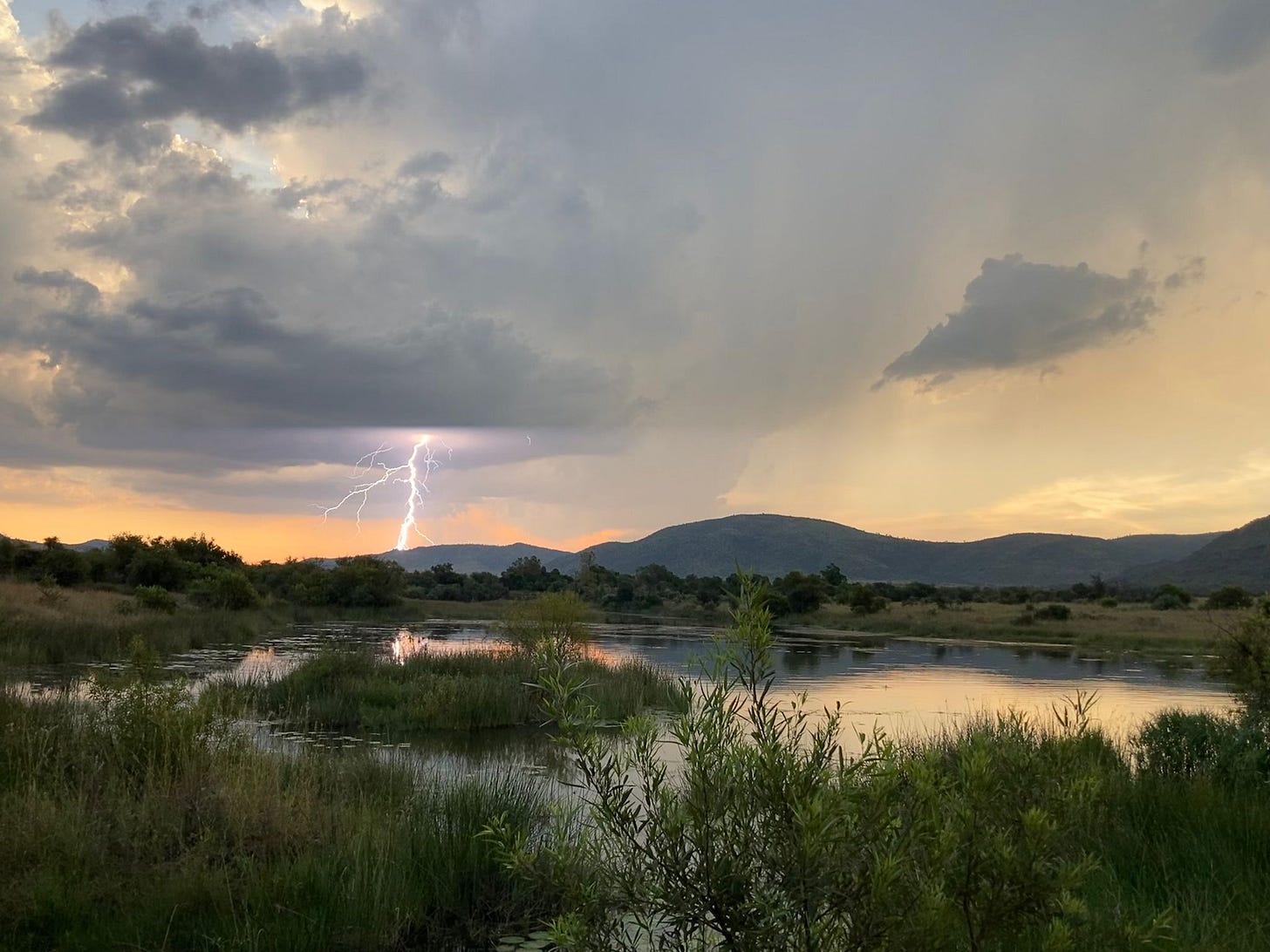Monday 20 March, 2023
The Decisive Moment
Caught by Jess Betts in Pilanesberg National Park, South Africa, the other day.
Quote of the Day
”Competition brings out the best in products, and the worst in people.”
David Sarnoff
Musical alternative to the morning’s radio news
Peter Gabriel and Kate Bush | Don’t give up
Long Read of the Day
Dan Wang’s Letter for 2022
He’s the most insightful observer of China that I’ve come across, and his annual letter is always a treat. This one is no exception. It’s long, but really worth it. Just before Shanghai was locked down he caught the last flight to Yunnan, the province in China’s farthest southwest, and stayed there for quite a while. Yunnan’s landmass — slightly smaller than that of California’s — has greater geographic variation than most countries. It sounds like a good place to sit out the pandemic.
Mountains have always beckoned to dissenters, rebels, and subversives. It is not only the air that thins out at higher elevations: the tendrils of the state do too. Small bands of people only need to hike a while to find a congenial refuge in the mountains; it’s far harder for imperial administrators with their vast caravans to locate all the hideouts. Throughout history, therefore, people have climbed upwards to escape the state. It is not only to take leave of the irksome suction of the tax collector. It’s also to break free of the problems that accompany dense populations—epidemics, conscription, and the threat of state-scale warfare. As a consequence, people who dwell in the mountains tend to be seen as unruly folks, be they Appalachian Americans or Highland Scots.
Yunnan has been a distinguished refuge for peoples tired of the state. It is the heart of a vast zone of highland Southeast Asia described by James C. Scott in The Art of Not Being Governed—the best book I read this year (and which I will be drawing on throughout this piece). Scott writes about the innumerable hill peoples who have repaired to these mountains over the last several millennia, escaping oppression from the Burmese state, the Tibetan state, or most often, the Han-Chinese state.
Mountain refuges aside, the main thrust of the letter is to find a way of reflecting on 2022 in China. “The starting point”, Dan writes
must be the three most important events of the year. First, zero-Covid: extraordinarily tight controls that were all abandoned in December. Second, the greater centralization of political power under Xi Jinping after the 20th Party Congress. Third, a declaration of a “limitless friendship” with Russia that had “no forbidden zones” three weeks before its invasion of Ukraine.
And I loved this reflection:
The Chinese state remains enormously capable. But that statement demands refinements. First, it increasingly resembles a crew of firefighters who bring extraordinary skill to dousing fires that they themselves ignited. Hope you enjoy it s much as I did.
The SVB debacle has exposed the hypocrisy of Silicon Valley
Yesterday’s Observer column:
The first thing to understand is that “Silicon Valley” is actually a reality-distortion field inhabited by people who inhale their own fumes and believe they’re living through Renaissance 2.0, with Palo Alto as the new Florence. The prevailing religion is founder worship, and its elders live on Sand Hill Road in San Francisco and are called venture capitalists. These elders decide who is to be elevated to the privileged caste of “founders”.
To achieve this status it is necessary to a) be male; b) have a Big Idea for disrupting something; and c) never have knowingly worn a suit and tie. Once admitted to the priesthood, the elders arrange for a large tipper-truck loaded with $100 bills to arrive at the new member’s door and cover his driveway with cash.
But this presents the new founder with a problem: where to store the loot while he is getting on with the business of disruption? Enter stage left one Gregory Becker, CEO of SVB and famous in the valley for being worshipful of founders and slavishly attentive to their needs. His company would keep their cash safe, help them manage their personal wealth, borrow against their private stock holdings and occasionally even give them mortgages for those $15m dream houses on which they had set what might loosely be called their hearts.
So SVB was awash with money. But, as programmers say, that was a bug not a feature…
My commonplace booklet
Golf’s governing bodies are proposing to change golf balls
According to the New York Times it’s because players like Rory McIlroy are hitting drives that are too long.




